
- -14%
ebook Developing into an effective Polish Teacher of English
Odkryj, jak skutecznie rozwijać się w roli nauczyciela języka angielskiego w Polsce dzięki książce "Developing into an effective Polish Teacher of English". Ta cenna publikacja, autorstwa Doroty Werbińskiej i wydana przez Uniwersytet Pomorski w Słupsku w 2011 roku, zapewni Ci dogłębną analizę kluczowych kompetencji oraz teorii osobistych nauczycieli języka angielskiego.
Czy chcesz poznać sekrety efektywnego nauczania? Ta książka elektroniczna pomoże Ci zrozumieć, co wyróżnia najlepszych polskich nauczycieli języka angielskiego i jak możesz rozwinąć te cechy w sobie. Dzięki dwóm badaniom przeprowadzonym niemal dekadę temu oraz nowszym, dowiesz się, jakie kompetencje zawodowe są niezbędne do skutecznego wykonywania pracy nauczyciela.
Wprowadzenie do ebooka "Developing into an effective Polish Teacher of English" to przewodnik po najważniejszych aspektach rozwoju zawodowego nauczycieli języka angielskiego w Polsce. Dzięki temu wydaniu elektronicznemu zyskasz cenne wskazówki dotyczące optymalnego przygotowania przyszłych kandydatów na nauczycieli języków obcych, dostosowane do polskiego kontekstu edukacyjnego.
Wybierz najlepsze ebooki z literatury pięknej i edukacyjnej w formacie PDF i ciesz się możliwością pobrania tej cennej publikacji ze sklepu z ebookami. Niezależnie od tego, czy jesteś studentem, nauczycielem, czy po prostu pasjonatem języka angielskiego, "Developing into an effective Polish Teacher of English" to idealny wybór dla każdego, kto pragnie poszerzyć swoją wiedzę i rozwijać się zawodowo.
Zacznij czytać już dziś i odkryj, jak zostać skutecznym nauczycielem języka angielskiego w Polsce!
Spis treści ebooka Developing into an effective Polish Teacher of English
INTRODUCTION 9CHAPTER 1. A REVIEW OF STUDIES ON EFFECTIVE TEACHING 11
Introduction 11
1.1. The beginnings: the concept of good practice 11
1.2. The concept of successful teaching 13
1.2.1. The behaviourist approach 13
1.2.2. The cognitive approach 14
1.2.3. The communicative approach 15
1.2.4. The humanistic approach 16
1.2.5. Current concepts of successful teaching 17
1.3. Major studies of effective teachers 19
1.3.1. Highet’s qualities of a good teacher 20
1.3.2. Good teachers’ characteristics in Okoń’s articles on teacher personality 20
1.3.3. Taylor’s study 22
1.3.4. Teacher qualities identified by Ryan 22
1.3.5. Flanders’ styles 23
1.3.6. Bohucki’s study of teacher personality 23
1.3.7. Rosenshine and Furst’s correlates of effective teaching 24
1.3.8. Pupils’ expectations of teachers – Nash’s study 25
1.3.9. Achievement of objectives by effective teachers 25
1.3.10. Bloom’s list of effective teachers’ classroom practices 26
1.3.11. Ericksen’s essence of good teaching 26
1.4. Effective language teacher studies 27
1.4.1. Moskowitz’s analysis of outstanding teachers’ behaviours 27
1.4.2. A good teacher’s qualities as perceived by young adolescents 28
1.4.3. Politzer and Weiss’s research 29
1.4.4. Komorowska’s research on factors conditioning success and failure 29
1.4.5. Sanderson’s project on good language teachers 30
1.4.6. The need for change – Hawley et al.’s research on the effective teacher 31
1.4.7. Some contemporary studies of good language teachers 32
1.4.8. Effective language teacher studies – a summary 35
1.5. Studies of poor language teachers 36
1.6. Concluding remarks 38
CHAPTER 2. A PROFILE OF A LANGUAGE TEACHER’S PROFESSIONAL COMPETENCES 39
Introduction 39
2.1. Linguistic competence 40
2.1.1. Language proficiency 40
2.1.2. Subject matter knowledge 45
2.2. Methodological competence 47
2.3. Psychological competence 49
2.4. Pedagogical competence 51
2.5. Normative competence 52
2.5.1. Interactive knowledge 53
2.5.2. Causal knowledge 53
2.6. Experiential competence 55
2.7. Contextual competence 57
2.8. General competence 58
2.9. Teacher knowledge – a summary 60
2.10. Teacher competences vs. human wisdom 61
2.11. Concluding remarks 64
CHAPTER 3. TEACHERS’ PERSONAL THEORIES 65
Introduction 65
3.1. Fundamental concepts and approaches 65
3.1.1. A transmission approach 66
3.1.2. A constructivist approach 66
3.1.3. Teacher Development Approaches 67
3.2. Definition of personal theories 68
3.2.1. The term 68
3.2.2. Definitions of the term 69
3.2.3. Teachers’ personal theories: an overview 74
3.2.4. Teachers’ personal theories characteristics 76
3.3. Sources of teachers’ personal theories 77
3.3.1. Teachers’ own experience as language learners 77
3.3.2. Personality factors 78
3.3.3. Research-based teaching principles 79
3.3.4. Principles derived from an approach or method 80
3.3.5. Established practice 80
3.3.6. Experience of what works best 81
3.3.7. Origins of language teacher beliefs – a summary 81
3.4. Language teacher beliefs 82
3.4.1. Beliefs about language 82
3.4.2. Beliefs about curriculum 83
3.4.3. Beliefs about learning 84
3.4.4. Beliefs about teaching 85
3.4.5. Beliefs about the language teaching profession 93
3.4.6. Teacher beliefs – a summary 94
3.5. Metaphors as an aid to understanding teacher personal theories 95
3.5.1. Advantages of metaphor 95
3.5.2. Metaphors in teacher beliefs 96
3.5.3. Metaphors – a summary 105
3.6. Concluding remarks 106
CHAPTER 4. THE EFFECTIVE FOREIGN LANGUAGE TEACHER – NTERVIEWS 107
Introduction 107
4.1. Selection of teachers for the study 107
4.2. The objectives 109
4.3. The technique of data collection 109
4.4. Analysis of the data 111
4.5. Interview 111
4.5.1. Interview 1 112
4.5.2. Interview 2 116
4.5.3. ME as an effective teacher: the ‘change’ aspect 124
4.5.4. The profile of ME as an effective at present 133
4.6. Concluding remarks 133
FINAL REMARKS AND CONCLUSIONS 135
BIBLIOGRAPHY 138
APPENDICES 149
Szczegóły ebooka Developing into an effective Polish Teacher of English
- Wydawca:
- Uniwersytet Pomorski w Słupsku
- Rok wydania:
- 2011
- Typ publikacji:
- Ebook
- Język:
- polski
- Format:
- Liczba stron:
- 152
- Miejsce wydania:
- Słupsk
Recenzje ebooka Developing into an effective Polish Teacher of English
-
Reviews (0)

Na jakich urządzeniach mogę czytać ebooki?
- -14%




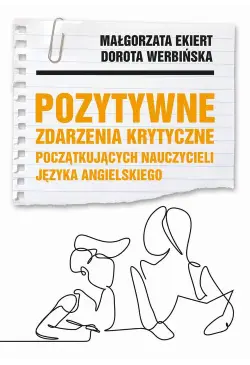
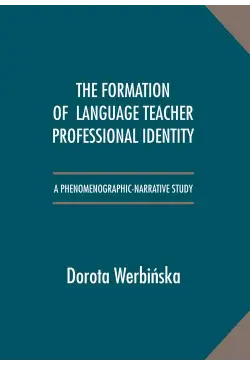

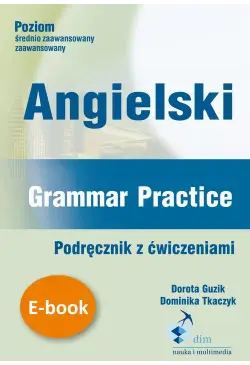

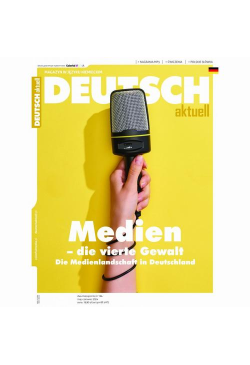
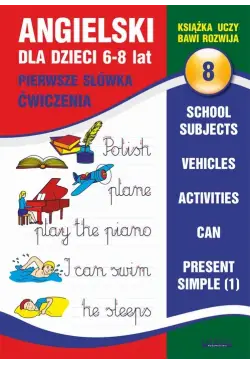


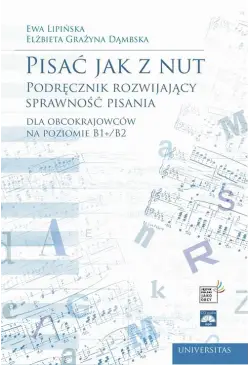



@CUSTOMER_NAME@
@COMMENT_TITLE@
@COMMENT_COMMENT@